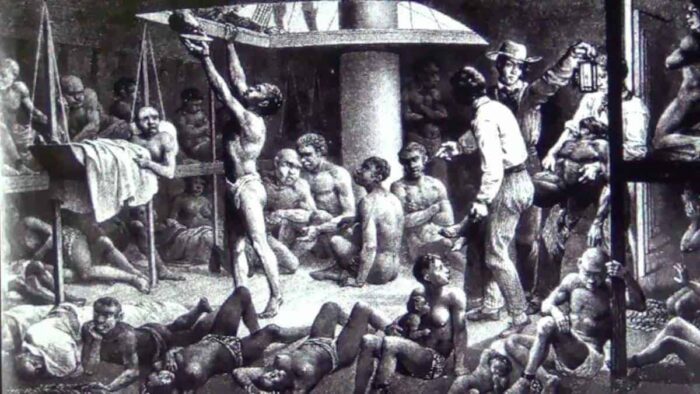If you’re a white American, like me, the absolute worst thing someone can call you is racist. In fact, it’s such a terrible thing to call someone that few of us ever do it. Racists are the crazy white supremacists openly spouting hate. The others aren’t perfect, sure, but they’re not racists. Right?
That is a problem.
How often have you heard someone claim “I am not a racist”? I hear it constantly. They usually seem disgusted that you’d even suggest it. They seem to think that the person making the claim is the one at fault, the one being divisive.
Example conversation:
Person #1: I don’t know man – the way you said “black guy” in that joke doesn’t sit right with me.
Person #2: It’s just a joke man, lighten up. I didn’t mean anything by it.
Person #1: It felt kinda racist.
Person #2: I am NOT a racist – how dare you! Why’d you have to go there? You know I don’t hate black people. I even voted for Obama. Not cool.
Throughout American history, too many of us have felt justified stating our racism overtly. This attitude has changed drastically over the last few decades. Now, being racist has become one of the strongest taboos in our culture. It is something to be deeply ashamed of.
But is it possible that this taboo is part of the problem?
We are incredibly sensitive to being called racist. Suddenly, people that are clearly saying racist things – that is, anything that reinforces the systems and cultures that marginalize people of color – are now often not considered racists. They are just normal, decent people who misused some words. ‘We shouldn’t condemn them as racists just for a few misguided comments, should we?’ says our collective conscience.
Maybe more troubling, we’ve made calling someone a racist unacceptable. If you’re going to call someone a racist, they better have had done something egregious, and you better have proof. ‘We should give people the benefit of the doubt and not condemn them as racists. Why spread hate? Why be divisive?’ again pleads our collective conscience.
People say “I am not a racist. I believe we should all be treated the same and have equal opportunity.”
But believing that people should all be treated the same way doesn’t make you not a racist. Believing what should be doesn’t mean you act accordingly. To be a racist is simply to be complicit in racism.
And let’s be clear, American culture is and always has been deeply racist. We stole the land we live on from people whose skin colors made them “savages.” And we built it up on the backs of people whose skin color made them slaves. Hundreds of years later, we still marginalize, dismiss, and erase them. Every time someone claims “All Lives Matter” or tells a person of color they are overreacting reminds us of this.
All white folks in America are complicit in our racist culture. We have all been indoctrinated into it and therefore, knowingly or unknowingly, perpetuate it. To be a white American that is not a racist would be to somehow have magically unlearned a lifetime of programming – an impossibility.
Yet, somehow today it’s much much worse to point out someone’s racism than it is to deny one’s own racism. We feel sympathy for those who are called racists. We think those calling them out are exaggerating and being unnecessarily cruel.
If we want real change, we need white folks to own that we are racists, that we are complicit in racism. When we bring awareness to our complicity, we open ourselves to break free from it. When we acknowledge our faults, we prepare ourselves for healing. When we see ourselves as inherently and involuntarily shaped by the cultures that we are born into, we empower ourselves to transcend them.
Racism is not just about extreme prejudice. It is not just about overt violence and bigotry. For many, racism is most damaging when it is subtle, unspoken, and left unacknowledged.
We let it go unacknowledged because it is too painful to acknowledge it. We know that if we did acknowledge it, we’d have to fundamentally reorient ourselves to the world. So we create taboos against calling people a racist and we feel sympathy for those who are called racists.
That is a problem.
How can we move forward when it is worse to acknowledge racism than it is to deny it?
White folks, we are all racists. We’ve got to acknowledge it in ourselves and in others, even when – especially when – it’s subtle.
White folks, we are all racists. Acknowledging this doesn’t mean we are terrible, broken people. It doesn’t mean we can’t help dismantle the toxic culture that we’ve been born into. It doesn’t mean that we can’t be effective allies or accomplices. It just means that we are willing to be vulnerable, confront the ugliness programmed into us, and begin the work of letting go.
My name is Peter, and I’m a racist.
I see my racism every time I get nervous meeting a person of color and then perfectly in my element seconds later meeting a white person. I see my racism when I wish to myself that people of color wouldn’t be so angry so we can be more “productive” in our conversation. I see my racism when part of me hopes that writing an article about being a racist means I’ve done enough.
I will always be a racist. Our society programmed me this way. But I also commit to do everything I can to bring awareness to and let go of my racism. And I can commit to following and supporting those who suffer because of it.

